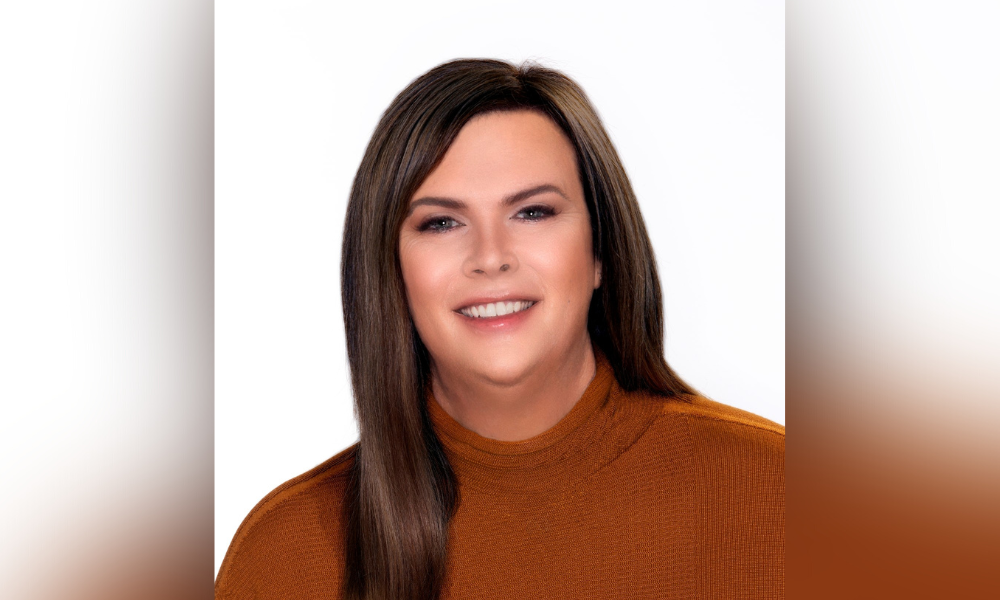'When you've been presenting as a male in the workplace for over 30 years, they're allowed to be surprised'

“I would say that the response, on the whole, was extremely positive.”
That’s Wynne Nowland’s reply when asked about her experience of coming out as a transwoman at work.
CEO of Bradley & Parker, an insurance and financial services company based in New York, she scheduled the Tuesday after Memorial Day weekend of 2017 to introduce herself to her co-workers. And she did it in swift fashion.
“Everyone’s transition is different and everyone handles their transition differently, but I made the decision that the thing that would work best for me was to not do it gradually but to just rip the bandaid off, if you will,” she says in talking with Canadian HR Reporter.
Before that day, she booked a full week off work to handle important matters.
“I knew I wanted to have some surgeries done before I came out, so I set those up. I also knew that I wanted to be legally transitioned when I came out, so I made sure to get all that done.”
Last year, a law firm in Ontario started offering its workers gender affirmation coverage. Borden Ladner Gervais (BLG) is providing $10,000 per year for the program, up to a maximum of $50,000 per person.
Nowland notified her board of directors and some key managing people that she would be returning to work as Wynne and would be alerting the rest of the employees via email that morning.
When the day came, some people were surprised, but there weren’t any outright negative replies.
“There were certainly some expressions of surprise, but that’s to be expected. When you’ve been presenting as a male in the workplace for over 30 years, when you lay this on them, so to speak, they’re allowed to be surprised. You just want them to be able to process it and hopefully support you in your decision about your lifestyle, and about being your authentic self. And I was very fortunate because that’s pretty much what I found, across the board.”
Since then, Nowland says she probably has better relations with other women in the office than before. “I’ve heard from a couple of women I work with that since my transition, even though I’m pretty much the same person, they feel that I’m more approachable. So that’s a happy benefit for me,” she says, while her relationships with men have not changed “pretty much, at all”.
Despite the trials of the pandemic, it’s always a good time to work on becoming a good ally to LGBTQ+ people. And that commitment should go beyond Pride Month, says one diversity expert.
Preparation for employers
Nowland knows how lucky she was with how things turned out. She also had the benefit of already being in a leadership position - she was already the CEO – at a “welcoming” and “progressive” company.
But she knows of others who have had a different experience.
“I know a lot of trans people, a lot of gay and queer people, a lot of people that are just either racially or otherwise under-represented, who don’t have great experiences,” she says.
Back in 2018, Michael Cherny spoke to Canadian HR Reporter about coming out as transgender at Deloitte, where he worked as chief of staff.
Those kinds of situations could be prevented if only employers are ready to handle them when they come, says Nowland.
“Whether it’s trans or other DEI issues, companies need to have policies and procedures in place so that they’re not scrambling when something happens. Because, sooner or later, something is going to happen.”
Being ready is a key step to ensuring transgender inclusion at work, said panellists on a recent webinar.
And employers should set the culture to ensure that when trans people do come out, they will be welcomed, she says.
“That all boils down to having plans and procedures, and communicating those down through the ranks, through your management system and to all your team members. Your team members should know the kind of culture your company has.”
A 2021 Ontario human rights case highlighted the importance of treating gender pronouns properly in the workplace.
There are some employers that use big words about their DEI policies, but cannot “walk the walk,” says Nowland. In fact, more than two-thirds (67 per cent) of HR and business executives admit their organization is only somewhat successful in its attempts to create a more diverse, equitable and inclusive workplace.
But it’s improving, she says.
“I think more and more companies are getting engaged [so] that if a person — a trans person, for instance — comes to their manager, comes to HR, that they have a good process in place to make sure that that person’s rights are not infringed upon.”




